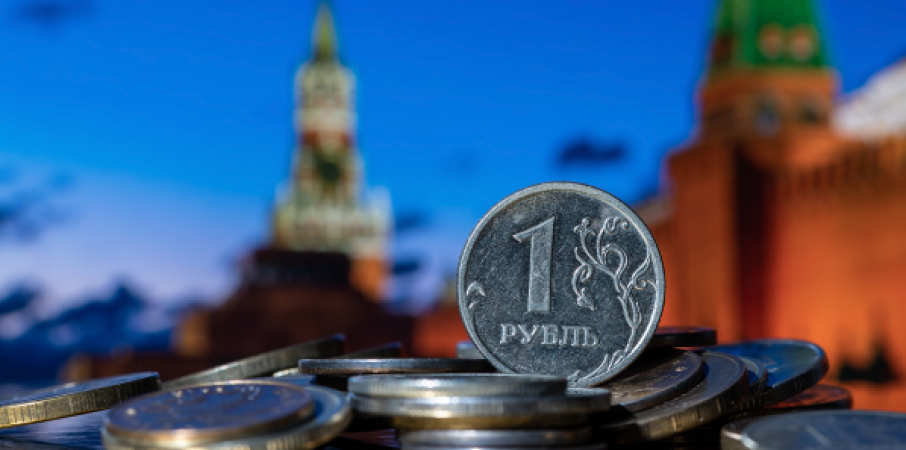
USA: Western sanctions against Russia are hurting the country's economy, but the conflict that started in Ukraine is only getting stronger as the year ends. Troops engage in combat while missiles are fired at Ukrainian cities and the death toll continues to mount.
The ongoing conflict may be used by opponents as evidence that the sanctions have failed. However, experts claim that despite Russia not withdrawing its forces, these actions still have an objective to keep the pressure on Moscow.
"I don't think sanctions are going to force Russia to negotiate," said Alexander Lanoszka, assistant professor of international relations at the University of Waterloo in southwestern Ontario. The sanctions, according to Lanoszka, strain the Russian government and make it more difficult for Moscow to raise funds for its struggle.
Also Read: Taiwan will reinvest $12 billion in extra tax revenue in the economy in 2023
They could also make the Kremlin's budget process more costly in terms of opportunity cost, according to Lanoszka, who also thinks Western financial and military support for Ukraine would have a more noticeable effect on the battlefield.
The International Monetary Fund (IMF) has predicted that Russia's economy will shrink by 3.4% this year, lower than the 35% projected contraction of war-torn Ukraine's economy.
Although Sergei Guriev, an economist and provost at Sciences Po in Paris, said the measure "underestimates the performance" of the country's wartime economy, the decline in Russia's GDP is much smaller than anticipated.
Also Read: Goldman Sachs' CEO announces job cuts amid concerns about the world economy
GDP in Russia is rising due to increased production of artillery shells, but Guriev said it has "no positive effect on the quality of life of Russian families."
According to him, the significant drop in household spending is a clear indication of how the conflict and related restrictions have changed the lives of the local population.
Journalist and historian Joy Neumeyer claimed that domestic consumers are doing well, with Russian state media promoting the idea that the ban has been a costly failure for the West.
Neumayer, who previously worked as a reporter in Russia, said via email that "state media also claim, contrary to most economists, that Western brands are basically being replaced by domestic counterparts." Is."
Also Read: There may be a significant global economic depression In 2023
Extensive sanctions have been imposed on Russia, including the exclusion of important financial institutions from the SWIFT system, restrictions on the central bank's ability to access $600 billion in reserves held by foreign institutions, and restrictions on the import of Western goods and technology.
The difficulties posed by the sanctions have been openly acknowledged by senior Russian officials. Russian President Vladimir Putin criticized the "economic storm" the nation was experiencing in July. However, he claimed that it was not doing the damage that the West had expected.
Russia's central bank chief Elvira Nabiullina recently sent a similar message to lawmakers, saying that despite the effects of Western pressure being widely felt, the country's economy and banking sector resisted them.
As someone who has been subject to sanctions herself, Nabiullina said, "Sanctions are very powerful and their impact on the Russian and global economy should not be underestimated." According to Reuters, Russia reacted to the sanctions by raising its benchmark interest rate to its highest level this century.
According to Janice Kluge, senior associate at the German Institute for International and Security Affairs, the most significant change was made by Russia at the start of the war.
In the early weeks after the sanctions went into effect, Kluge said via email, "this helped stabilize the ruble exchange rate, and the stronger ruble took some of the pressure off inflation."
The IMF reported in October that European gas prices are set to soar "more than four-fold by 2021" as a result of the chaos of the war. Since Russia benefits from higher gas prices, Western governments, after months of deliberation, adopted a price cap on Russian oil to reduce the amount Moscow receives from its exports.
The price cap has been rejected by Russian officials, who have also threatened to reduce shipments to nations that support it. Kluge claimed that as a result of the sanctions, Russia "conquered new markets for its oil exports," increasing its oil sales to China and India.